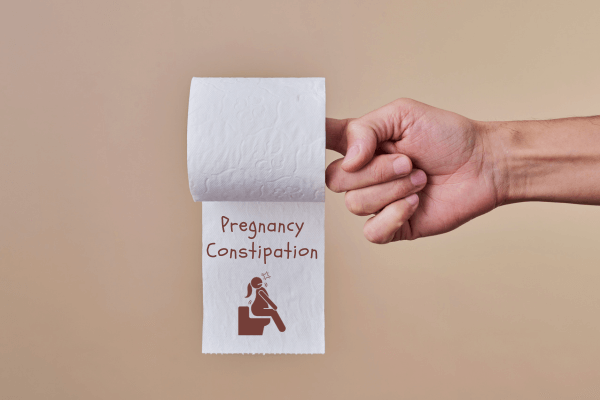Two years after our child was born, my wife told me in a heated argument: “You never supported me once in the last three years”.
My self-image of a wonderful husband came crashing down, much like the tears in her eyes. Fighting against my instinct to counter indignantly, I decided instead to understand more. Perhaps there was truth behind those tears. And so we talked – well, she talked, and I “really” listened. The more I listened, the more I learnt how badly I had handled things.
When I look back, I realize that I was simply doing what I thought my role was and what I had seen my role models do for their pregnant spouses. But maybe the playbook needs to change, and so too the role models!
So, here’s a guide for dads-to-be on how to care for and support your pregnant spouse. From a fellow dad.
During The Pregnancy
One thing that my wife said to me several times in these conversations was: “Did you ever stop to think how big a mess I was for those nine months?”
It was true; my thoughts had all been about the baby, not her. I would advise you to instead:
Learn about the pregnancy
Read and learn about the physical, mental and hormonal challenges pregnant women go through – the sudden weight gain, the back aches, bloating, fatigue, hormonal roller coasters and accompanying mood swings….
Work out how to support your pregnant spouse in each trimester rather than telling her to just “take your meds”. Find out how to provide her physical and emotional support throughout. She will need it and when she gets it from you it will fill her with strength and confidence.
Understand the impact on her life and career. Rather than telling her, “Don’t worry; I earn enough to take care of us”, help her plan how to get her career back on track after the pregnancy.
Get involved
I drove my wife to prenatal appointments but I didn’t know enough to get involved in the conversations with the doctor. Instead, I suggest you learn about the huge dilemmas facing your spouse as she goes into each appointment:
- Natural birth or C-Section?
- Epidural or Non-Epidural?
- Which hospital to choose?
- What’s the best diet and exercise regimen?
Be her sounding board and planning partner. Get involved in drafting the birth plan. Go to all prenatal appointments. Tour the hospital together.
During Birthing
I had assumed there is no role for a man in a birthing room. But after talking to my wife, I realized how wrong I was. There is much I could have done in preparation of as well as during the labour and delivery
She needs you to be her voice in that delivery room. If you partner with your spouse on all the planning and prep you will know the ins and outs of the birth plan and the preferred action plan if surprises crop up.
She might be in no state to advocate for herself. You have to figure out how to support her wishes in that room.
Post Pregnancy
“We fussed over every little thing we bought for our kid, but did you spare a second to think about what I needed?”. There was no denying the truth in that!
Take care of the new mother
Everyone, including the new mother, gets busy caring for the baby. Consequently the new mother often doesn’t get the care she needs during the postnatal recovery period. As her partner, it should be your role to take care of her.
Make sure she gets the extra nutrition she needs. Make sure she gets time to relax and unwind.
“Sleep when the baby sleeps,” they say; but we all know it’s easier said than done. Take shifts watching the baby so she can rest before the next feeding session.
Watch out for Postnatal Depression (PND) symptoms
The few times my wife expressed her tears and frustration to me, I just mistook it for “a passing phase”. Don’t make this mistake.
Read up about PND, know the symptoms, how PND differs from “baby blues”, and where to get help if needed.
You are ideally positioned to watch over your spouse. So keep an eye out for any alarming symptoms, seek help if needed, and be the friend she can confide her fears in.
Support And Protect Her From Unwelcome “Advice”
My wife had difficulty breastfeeding; and atop her own sadness over it, she had to bear thoughtless comments and shaming from someone in the extended family.
There can also be guilt and shame arising out of situations that are out of her control. To top it, a new mom is subject to a lot of unsolicited advice, thoughtless comments and hurtful remarks.
These things can really hurt deeply in this vulnerable period. You need to protect, reassure and support her when these situations arise. Knowing that you stand by her in every decision or situation can be a huge source of mental strength for her in these times.
Throughout The Journey
Here are some other things to keep in mind:
Logistics
Perhaps the only part where I played a significant role were in setting up the doctor visits, lab tests, ultrasounds, etc.
Take charge of paperwork. The logistics and paperwork feel like a small part of the whole journey but can take a lot of effort. This is something you could easily take off her checklist and put onto yours.
Talk, Talk, Talk
Lastly, the most important thing I missed was simply talking to her! She was drowning in a sea of changes, and her closest friend and partner simply didn’t have time to chat her up.
Find the time in between feedings, burpings, and diaper changings to talk to her. Don’t forget to enjoy the experience together – laugh and help her laugh as well.
Childbirth is a miracle, but you often need to remind yourselves of that miracle in those first few months. Show your love to her as much as you can.
Watch this quick video to discover 5 must-know tips for dads-to-be!
In Conclusion
I hope that every to-be dad can avoid the mistakes I made. Treat your pregnant spouse with kindness and respect. Talk to her, really listen when she has something to say and keep being the rock she can hold onto while the world around her changes.







